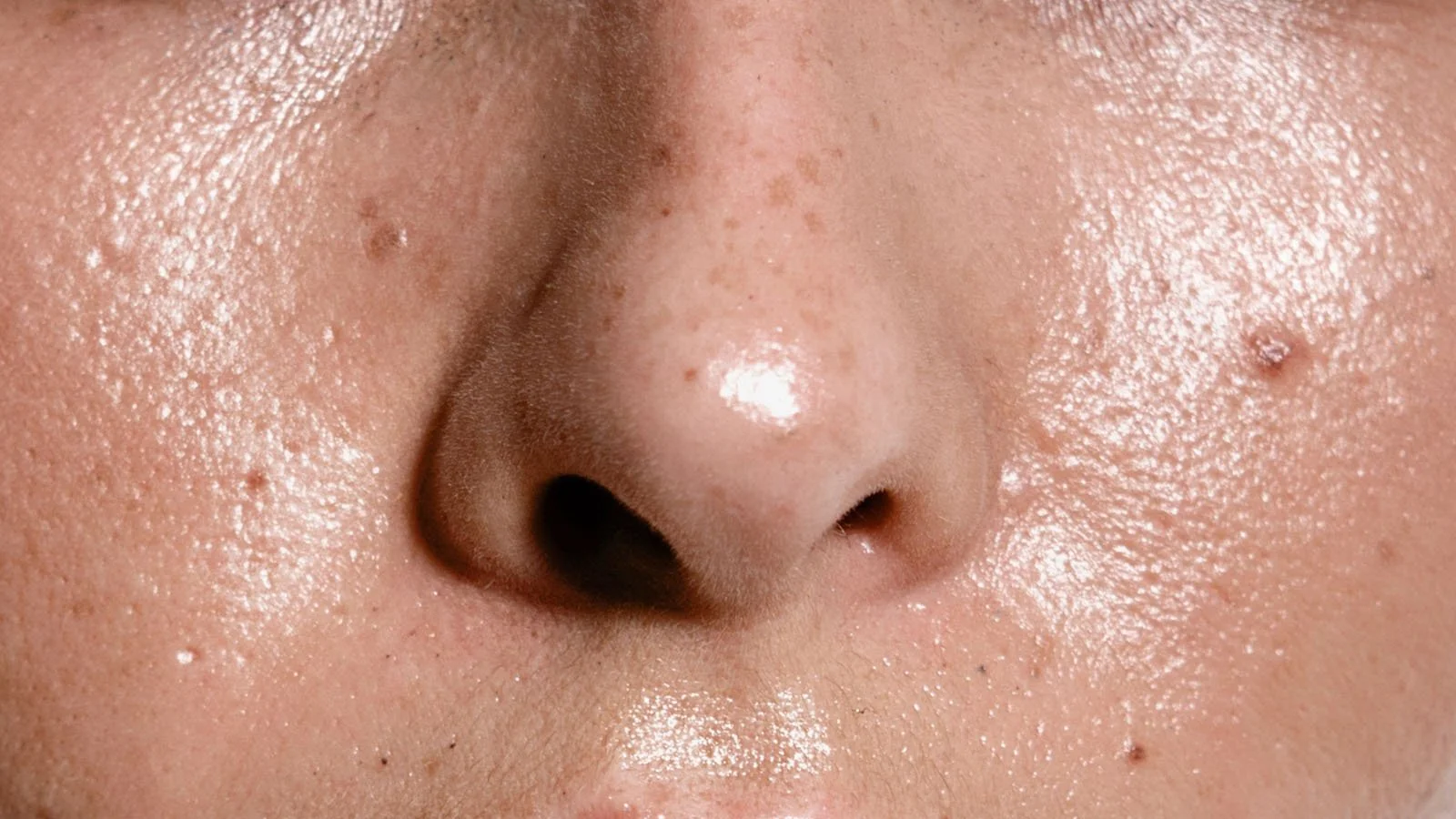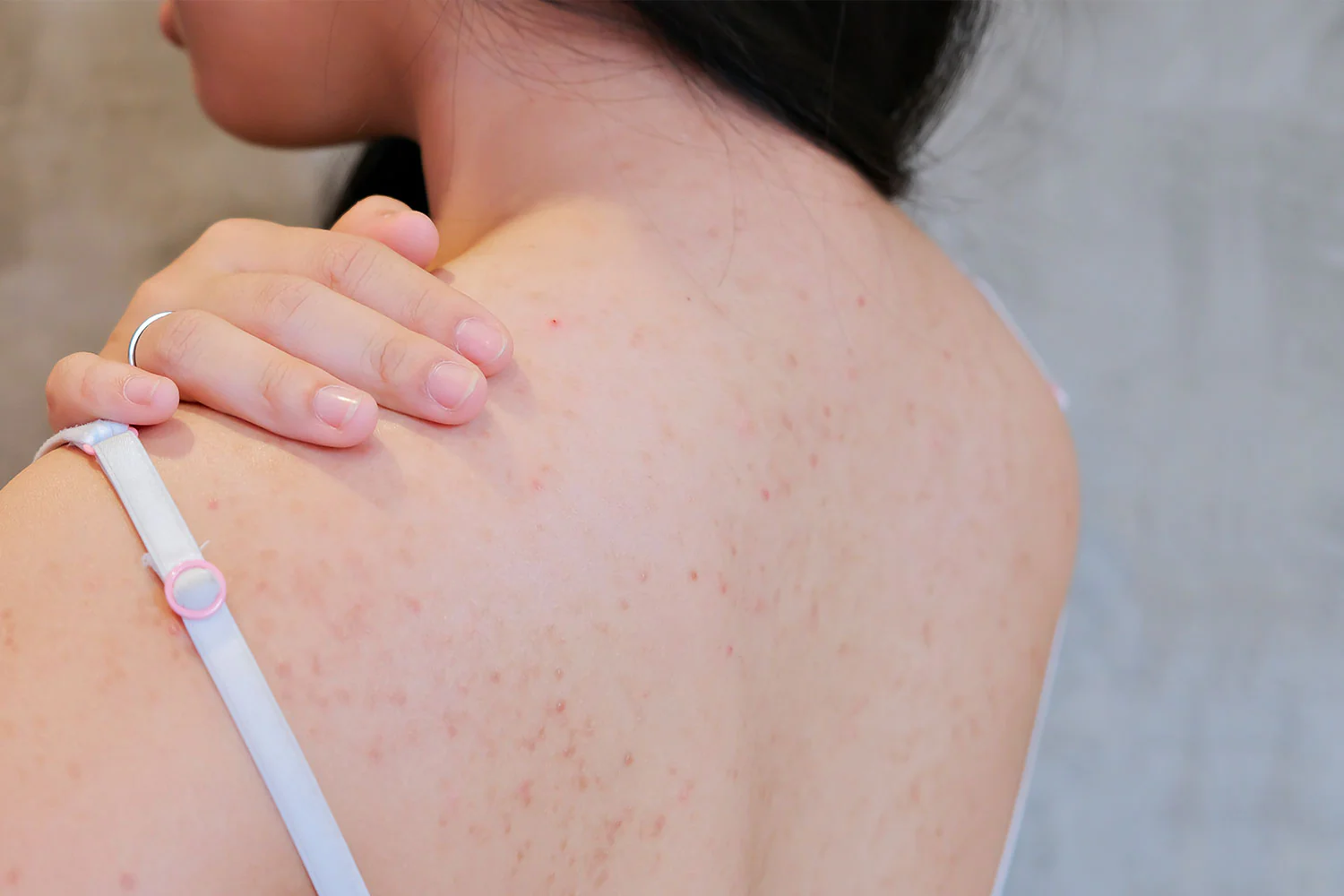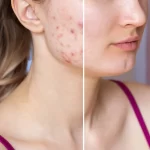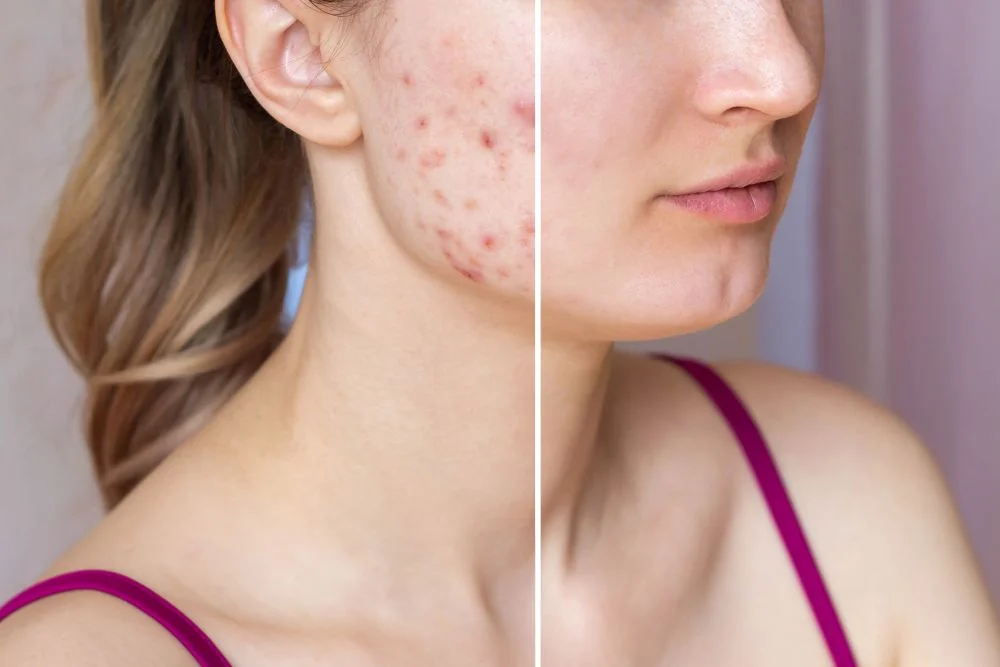When discussing Accutane and oily skin, the key point is that isotretinoin directly targets the sebaceous glands to reduce excess oil production and improve skin texture. It’s one of the most effective medical options for individuals with oily skin that leads to clogged pores or persistent acne.
By controlling sebum at its source, Accutane helps create lasting balance and decreases breakouts even after treatment ends. However, because it’s a prescription medication with specific safety requirements, it must be used under a dermatologist’s supervision to ensure effective and safe results.
Dr. Alicia Atkins and her team at DermOnDemand provide fast, discreet, and dermatologist-led access to prescription treatments online.
This guide explains how Accutane (isotretinoin) helps control oily skin and acne, including its mechanism of action, eligibility criteria for safe use, expected results, and how to manage the treatment process under medical supervision.
Key Takeaways
- Accutane, also known as isotretinoin, reduces oil by shrinking the sebaceous glands and is one of the most effective treatments for oily and acne-prone skin.
- Visible improvement typically begins within four to six weeks, and results can last for years with proper medical supervision and skincare maintenance.
- Before starting treatment, patients must undergo blood and pregnancy tests as part of a regulated risk management program to ensure safety.
- Common side effects include dry skin, chapped lips, and mild joint discomfort, all of which can be managed with hydration and gentle, oil-free products.
- Consulting a board-certified dermatologist, such as Dr. Alicia Atkins through DermOnDemand, ensures personalized dosing, continuous monitoring, and safe long-term results.
How Accutane Works on Oily Skin
Accutane is the brand name for isotretinoin, a form of vitamin A that targets the sebaceous glands to reduce sebum production. Limiting oil helps treat oily skin and acne vulgaris in people with clogged pores or inflammation.
The medication works by altering the behavior of sebaceous cells, thereby shrinking the glands and reducing oil production. This control of oil production creates an environment less favorable for acne bacteria, improving texture and clarity.
Low-Dose Treatment Benefits
In low doses, Accutane for oily skin can be as effective as traditional doses, with fewer side effects. This gradual approach works well for those who struggle with shine or mild acne but don’t need full-strength therapy. Under medical supervision, isotretinoin helps balance skin and prevent new breakouts.
What to Expect During Treatment
Many patients ask, “Does Accutane help with oily skin?” The answer is yes, its primary action is to reduce sebum production and rebalance the skin’s natural oil levels.
Most people begin noticing visible improvement within four to six weeks, as excess shine fades and pores appear smaller and clearer. During this period, it’s normal for the skin to experience mild dryness or sensitivity as it adjusts to the treatment.
With consistent use under dermatologist supervision, Accutane gradually transforms oily, acne-prone skin into a smoother and more balanced complexion.
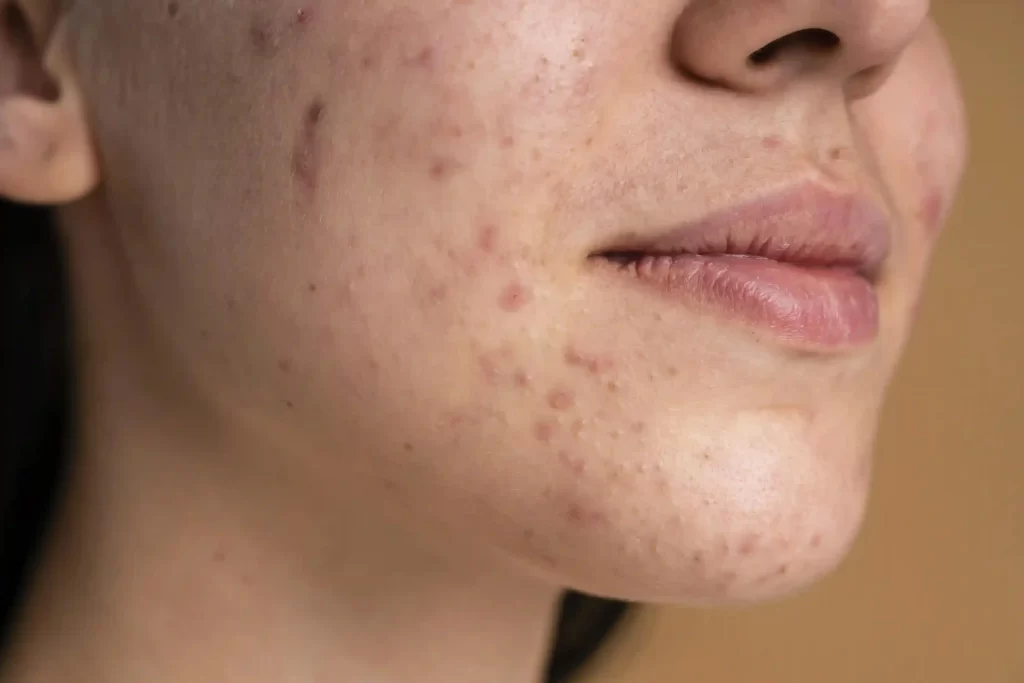
Treatment Duration and Permanence
Regarding “How long does Accutane take to reduce oil?”, results build gradually. Most people complete treatment in four to six months, after which the skin typically stays balanced for the long term.
Another frequently asked question is, “Can Accutane get rid of oily skin permanently?” For most, results last for years, though hormones or lifestyle may cause a minor return of oil. The skin rarely becomes as oily as it was before.
When Oiliness Persists
If you wonder, “Why is my skin still oily on Accutane?” the cause might be a low dose, a fast metabolism, or an incomplete skincare routine. Your dermatologist may adjust your plan or recommend oil-free products to maintain results.
When to Consider Accutane for Oily Skin (With or Without Mild Acne)
Not everyone with oily skin needs isotretinoin. Accutane is suitable for oily skin when topical products, dietary changes, or lifestyle adjustments don’t provide relief, or when excessive oil leads to mild or persistent acne.
Ideal Candidates and Medical Screening
Ideal candidates often have acne-prone skin, enlarged pores, and a tendency to experience constant shine. It also helps those who cannot tolerate other oral medications or want longer-lasting improvement.
Before starting, your dermatologist will review your medical history and order blood tests to check liver and lipid levels. Women of childbearing age must take pregnancy tests, as isotretinoin increases the risk of congenital disabilities.
For safety, all prescriptions are managed under a risk management program that ensures proper monitoring and oversight.
Alternative Options
If Accutane isn’t suitable, dermatologists can recommend safer alternatives to control oil and prevent breakouts. Options may include low-dose oral treatments, topical retinoids, or chemical peels that help renew the skin’s surface and unclog pores.
Maintaining a consistent oil-free skincare routine, balanced diet, and adequate hydration also supports long-term oil control. These approaches provide gradual improvement while minimizing potential side effects or medical risks.
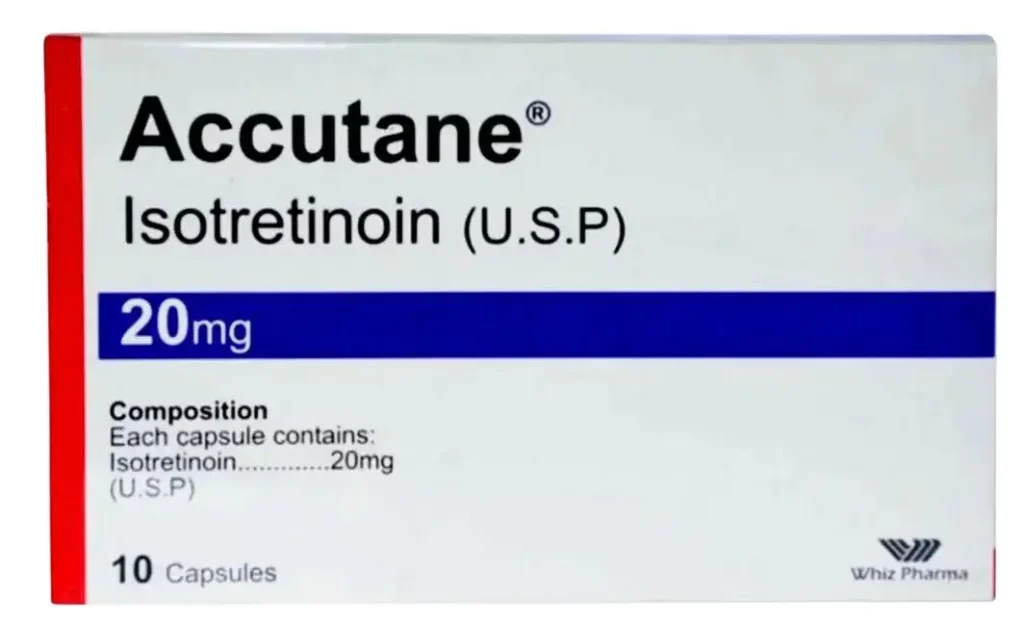
Side Effects and Daily Care
Because Accutane significantly reduces oil production, dry skin is the most common side effect during treatment. Patients may notice tightness, chapped lips, or mild flaking as the skin adjusts.
Using gentle cleansers, non-comedogenic moisturizers, and hydrating lip balms helps maintain comfort and skin balance. To support long-term results, follow a dermatologist-recommended skin care routine for oily skin designed to minimize irritation and maintain healthy oil levels.
How to Manage Side Effects
To manage these reactions:
- Use gentle, oil-free moisturizers and cleansers.
- Apply hydrating lip balm several times daily.
- Avoid harsh exfoliation or acid-based treatments.
- Wear sunscreen every day.
Some patients may notice joint pain or mild muscle discomfort, especially with intense exercise. Others report temporary eye dryness or mood changes. These are typical potential side effects and should always be discussed with your dermatologist.
For a detailed look at common isotretinoin side effects and how to manage them, visit DermOnDemand’s expert guide.
Monitoring for Safety
In rare cases, isotretinoin has been associated with inflammatory bowel disease, though evidence remains limited. Regular lab monitoring minimizes these risks and ensures a safe and effective treatment for acne.
Seek medical advice immediately if you experience severe irritation, frequent nosebleeds, or visual changes. Continuous supervision helps maintain safety while allowing the medication to treat acne effectively.
Start Your Dermatology Plan Online with DermOnDemand
How It Works
A licensed dermatologist should always guide treatment with isotretinoin for oily skin. At DermOnDemand, you can begin your care online in just minutes:
- Complete a secure questionnaire and upload photos of your skin.
- A board-certified dermatologist, such as Dr. Alicia Atkins, reviews your case within 24 hours.
- Receive a personalized prescription plan delivered directly to your inbox.
Expert Guidance and Ongoing Care
This process eliminates video calls and waiting rooms while maintaining privacy and professional oversight. The DermOnDemand team ensures that every patient receives expert, evidence-based care adapted to their skin type.
Follow-up communication ensures treatment remains safe and comfortable, enabling your doctor to adjust doses or manage any side effects. With guidance from Dr. Atkins, you can effectively treat acne and oily skin, achieving clear, balanced results that last.


